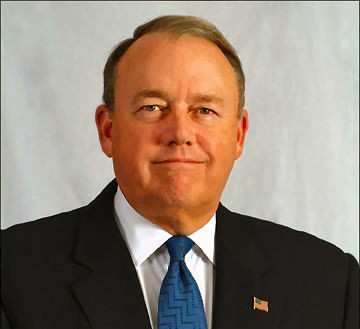Thu, Aug 13, 2009
Recommends Immediate Creation Of Committee To Address
Inconsistencies
 The Air Transport Association of
America (ATA) filed comments Tuesday expressing serious and broad
concerns about a proposed FAA regulation that would rewrite pilot,
flight attendant, flight engineer and dispatcher training
requirements. In particular, ATA believes that the proposal could
adversely impact current 'best practice' training programs -- a
result neither the FAA nor the industry want to see.
The Air Transport Association of
America (ATA) filed comments Tuesday expressing serious and broad
concerns about a proposed FAA regulation that would rewrite pilot,
flight attendant, flight engineer and dispatcher training
requirements. In particular, ATA believes that the proposal could
adversely impact current 'best practice' training programs -- a
result neither the FAA nor the industry want to see.
Instead of proceeding directly to a final rule, ATA recommends
that the FAA suspend this rulemaking and immediately convene an
Aviation Rulemaking Committee (ARC) to address the many conflicts
and inconsistencies identified in the ATA comments.
While the preamble of the notice of proposed rulemaking (NPRM)
states laudable goals that ATA fully supports, a careful
examination of the details of the proposed regulation reveals
numerous unworkable aspects, internal conflicts, conflicts with
current advisory material and inaccurate assessments of current
industry standard practices.
ATA member airlines take training extremely seriously and
believe that any rule changes in this area must yield an
improvement over existing regulatory requirements. After spending
thousands of hours analyzing the proposed rule, training experts
from ATA member airlines unanimously concluded that the proposed
rule contains substantial and material inconsistencies that make it
logistically impossible to implement. Furthermore, the proposal
seems to abandon the advancements in pilot training programs that
have been instrumental in improving airline safety.

ATA CEO James May
"While we appreciate the FAA's desire to quickly adopt new
training rules, we believe that the rule as proposed could set the
safety clock back by more than a decade," said ATA President and
CEO James C. May.
For example, the Advanced Qualification Program (AQP) enables
operators to customize their crew training programs based on
real-world operating environments. ATA believes that the FAA
proposal fails to recognize the value in this and other innovative,
data-driven approaches.
More News
Bolen Issues Statement Reinforcing Need To Reopen Government The National Business Aviation Association’s President and CEO issued the statement below in response to further >[...]
Output May Reach Its Best Since 2018 Despite Trailing Behind Airbus Boeing delivered 53 jets in October, bringing its 2025 total to 493 aircraft and marking its strongest output si>[...]
Low-Cost Airline Admits “Substantial Doubt” It Can Stay Airborne Spirit Airlines has once again found itself in financial trouble, this time less than a year after clai>[...]
Travelers Leaving Changi Will Soon Pay for Sustainable Fuel Starting April 2026, passengers flying out of Singapore will find a new fee tucked into their tickets: a Sustainable Avi>[...]
Pilot Was Having Difficulty Controlling The Airplane’S Rudder Pedals Due To His Physical Stature Analysis: The pilot was having difficulty controlling the airplane’s ru>[...]
 NBAA Responds To GA/BA Operational Restrictions
NBAA Responds To GA/BA Operational Restrictions Boeing Deliveries Surge to Pre-Pandemic Levels
Boeing Deliveries Surge to Pre-Pandemic Levels Spirit Forecasts Financial Turbulence
Spirit Forecasts Financial Turbulence Singapore Adds a Price Tag to Going Green
Singapore Adds a Price Tag to Going Green NTSB Final Report: Arlie L Raber III Challenger 1
NTSB Final Report: Arlie L Raber III Challenger 1




